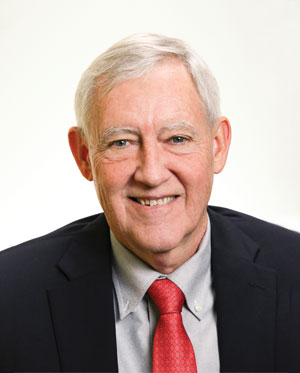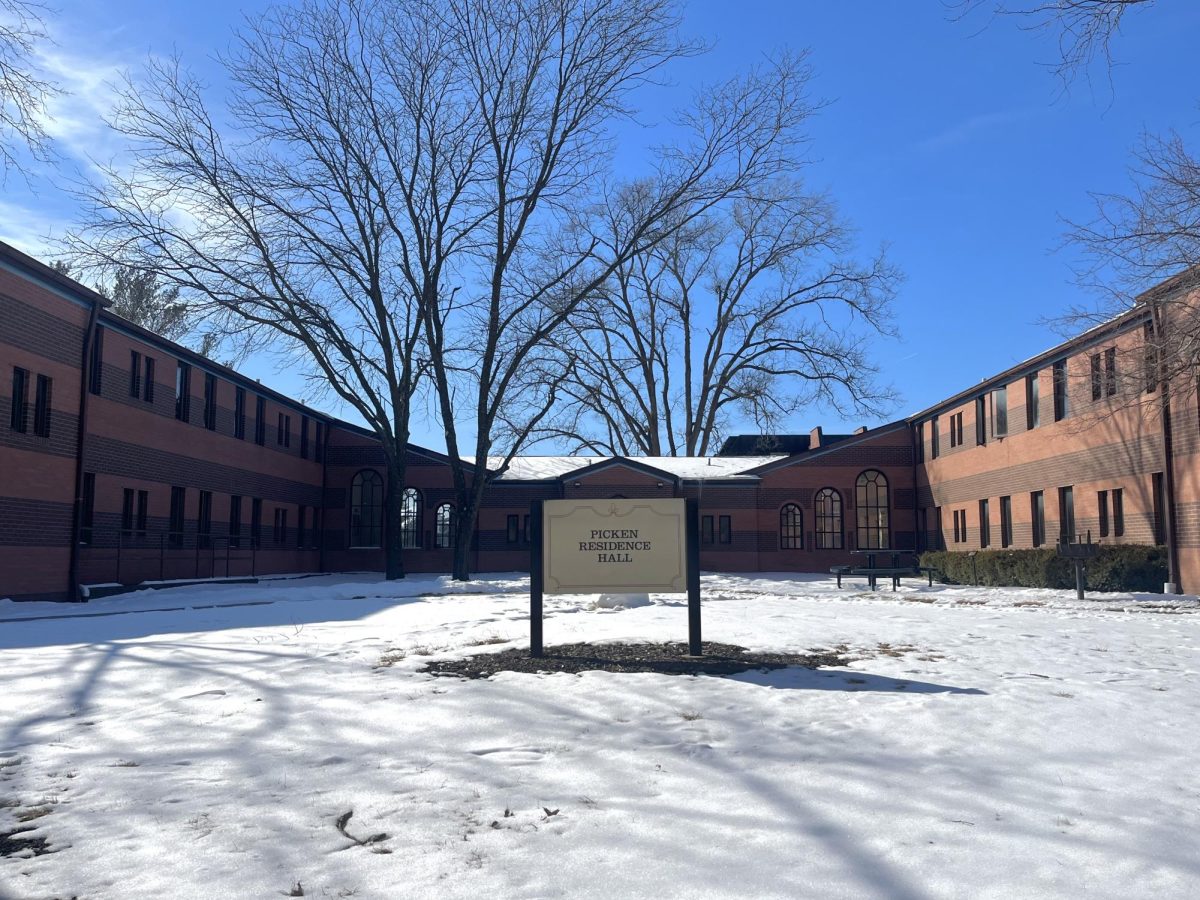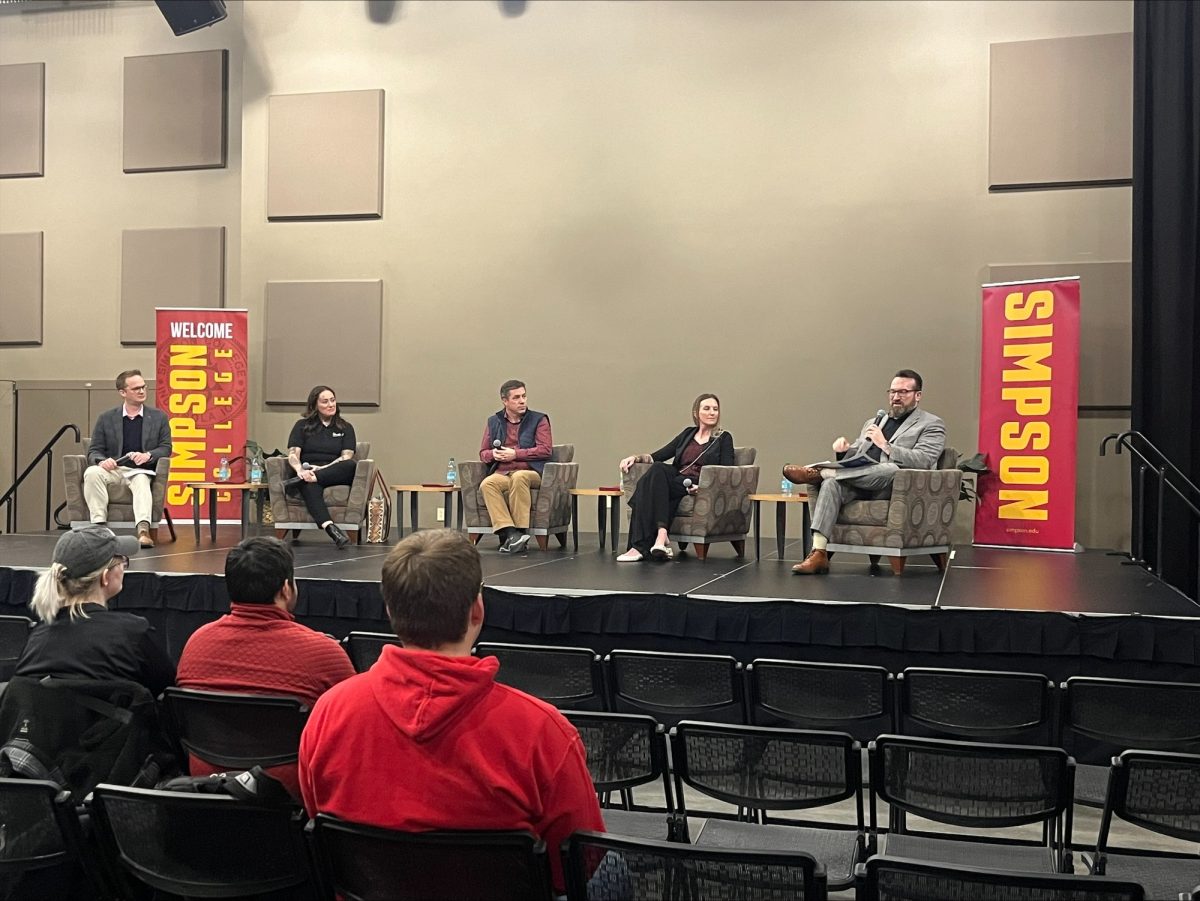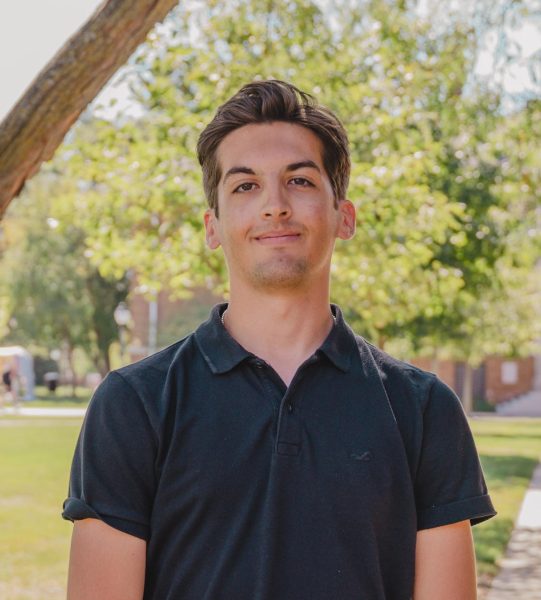On Wednesday, October 30th, Dr. Howarth Bouis delivered a lecture at Simpson College titled, “How Agricultural Policy Can Promote Nutrition Security: Why This Matters in LMICs.” Bouis is a 2016 World Food Prize Laureate, whose research focused on the diets of poor households in Asia. His research expanded globally, and he founded the HarvestPlus organization in 2003. His work has improved the nutritional matter of staple crops in Mexico, Africa and Asia.
Zinc, iron and vitamin A deficiency, a primary focus of Bouis, are harmful to preschool children in low and middle-income countries. One in two preschool children suffer from these deficiencies worldwide. Bouis said, “One of the harmful effects of not having good diets is that it retards your brain development, your cognitive function throughout your life.”
Years ago, the USDA had a breeding program to increase the level of vitamin A in carrots. Carrots, originally a light yellow or white, were turned dark orange and introduced to the consumer market. A similar breeding program led by Bouis focuses on maize in Africa. People eat the white maize, and the yellow maize is fed to livestock, as it contains less nutritional value and flavor. To increase the level of vitamin A in maize, it turns the color orange, similar to a carrot. It does not affect maize other than a higher nutritional value with vitamin A.
Bouis accomplishments include biofortified crops in over 40 countries and in the next few years, he hopes to release crops to another 20 countries. Some biofortified crops include zinc rice, zinc wheat, vitamin A maize, vitamin A cassava, vitamin A sweet potato, iron pearl millet and iron beans.
“We’ve actually been able to show improved cognitive function in children and women who ate high iron beans and high iron pearl millet,” said Bouis.
Bouis highlighted part of his work, which was located in a village in Nigeria. The village came together and decided to make Bouis an honorary chief. He went through the ceremony and was gifted beads and a scepter.
Bouis currently resides in the Philippines, a country he traveled to for three years as part of a volunteer organization before he got his PhD from Stanford University. He lives in Los Baños where the Agricultural University of the Philippines and International Rice Research Institute is located.
The World Food Prize Foundation is headquartered in downtown Des Moines. Each October, the foundation invites global leaders to discuss the latest concerns in the food and agricultural industry. Over 1,200 participants from over 60 countries attend the conference. The annual World Food Prize recognizes experts who have improved the quality, quantity or availability of food in the world. These individuals are awarded $500,000 and a World Food Prize Sculpture.










